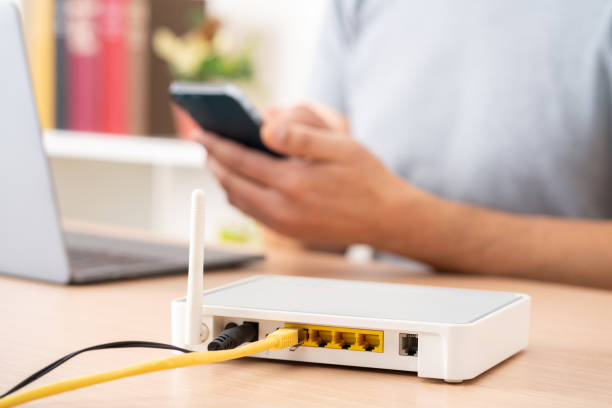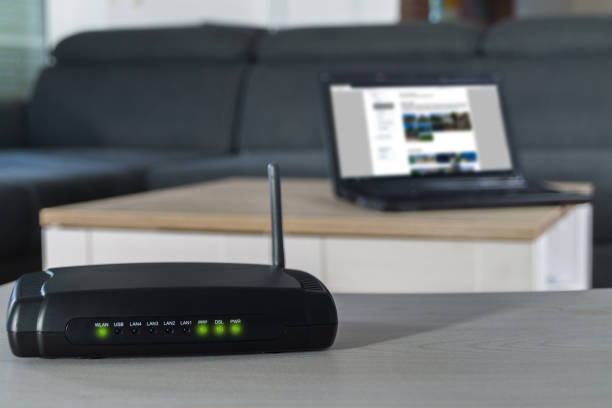Table of Content
Wired vs Wireless Broadband – Wondering which one’s right for you? In today’s online world, your internet choice matters. Whether working from home, streaming, or gaming, this guide will help you decide which connection suits your needs best.
What Is Wired Broadband?

Wired broadband connects your home or office directly to the internet using physical cables. These cables can vary in type, and the most common forms of wired broadband include:
- DSL (Digital Subscriber Line): Uses telephone lines to provide internet service.
- Cable Internet: Delivered through coaxial cables, the same used for cable TV.
- Fiber Optic: The fastest option, using light signals over fiber-optic cables to deliver ultra-fast speeds.
What Is Wireless Broadband?

Wireless broadband, on the other hand, delivers internet without the need for physical cables running into your home. It relies on radio waves or satellite technology to transmit data. There are various forms of wireless broadband, including:
- Wi-Fi: Local wireless networks usually connected to a router that’s plugged into a wired broadband connection.
- 4G/5G Networks: High-speed cellular data used primarily for mobile devices and portable hotspots.
- Satellite Internet: Uses satellites to provide internet service, often used in remote or rural areas.
Wired vs Wireless Broadband Key Differences
1. Speed
- Wired Broadband: Wired connections, particularly fiber-optic, offer the fastest and most consistent speeds. Fiber connections can reach up to 1 Gbps or higher, making them ideal for heavy users who need fast downloads and uploads.
- Wireless Broadband: Wireless speeds can vary depending on the type of connection (Wi-Fi, 4G, or 5G). While 5G can rival fiber-optic speeds in ideal conditions, it’s still not as widely available, and overall wireless networks tend to be slower and less reliable than their wired counterparts.
2. Reliability
- Wired Broadband: Reliability is a major advantage of wired connections. Since the data is transmitted through physical cables, it’s less susceptible to interference from weather or physical obstructions.
- Wireless Broadband: Wireless broadband can be affected by several external factors, including weather, physical obstacles (like walls and buildings), and the number of users on the network. This can lead to intermittent connectivity issues, slower speeds, and more frequent outages.
3. Mobility and Flexibility
- Wired Broadband: One downside of wired broadband is that it’s tied to a specific location. Once the cables are installed, you can only use the connection in that place. It’s not portable or flexible for users who need internet access on the go.
- Wireless Broadband: Wireless broadband shines when it comes to mobility. Cellular data networks (4G/5G) allow users to access the internet wherever there is cellular coverage, making it a perfect solution for travelers, remote workers, or those in multiple locations.
4. Latency
- Wired Broadband: Latency (the time it takes for data to travel from your device to the server and back) is typically lower with wired connections, especially fiber. This makes wired broadband ideal for activities like gaming, video conferencing, and live streaming where low latency is crucial.
- Wireless Broadband: Wireless networks, especially satellite-based ones, often experience higher latency due to the additional distance and interference. Even with 4G and 5G, you may notice more lag compared to fiber-optic wired connections.
5. Coverage
- Wired Broadband: Availability depends on the infrastructure in your area. Urban and suburban areas typically have access to DSL, cable, and fiber connections, but rural or remote regions might have limited or no access to wired broadband.
- Wireless Broadband: Wireless networks, including satellite internet, can cover areas where it’s difficult or expensive to install cables. This makes wireless broadband a good solution for rural or remote locations where wired options may not be feasible.
6. Cost
- Wired Broadband: Generally, wired broadband offers better value for high-speed, high-usage households. However, installation costs can be higher, especially if fiber-optic cables are involved or new infrastructure is needed in your area.
- Wireless Broadband: Wireless broadband, especially cellular networks, tends to have data caps and higher costs for heavy usage. While it may be cheaper to install and access, ongoing costs can rise with increased data consumption.
Wired vs Wireless broadband : Which One Should You Choose?
Ultimately, the choice between wired and wireless broadband depends on several factors: your location, usage requirements, and budget. Here’s a breakdown of what might work best for you:
Choose Wired Broadband If:
- Speed is a priority: You need ultra-fast and consistent internet for streaming, gaming, or running a home business.
- You require reliability: You live in an area with good infrastructure and want stable internet for work, video conferencing, or other critical tasks.
- You have a fixed location: If you primarily use the internet in one place, wired connections are often more cost-effective in the long run.
Choose Wireless Broadband If:
- Mobility is key: You travel frequently, work remotely, or live in multiple locations and need internet access wherever you go.
- You live in a rural or remote area: Wireless options like satellite internet or cellular data may be your only feasible choices for connecting to the web.
- You need flexibility: If you don’t want the hassle of installation or are in a short-term living situation, wireless broadband is a more convenient option.
Conclusion
Both wired and wireless broadband have their pros and cons, and the best choice depends on your individual needs. Wired broadband excels in speed, reliability, and performance, making it perfect for fixed locations with high internet demands. Wireless broadband, however, provides the flexibility and coverage needed by users who are always on the move or live in hard-to-reach places.
When deciding, consider how you use the internet, where you live, and what level of mobility you require. Whether you prioritize the speed and stability of a wired connection or the convenience of wireless access, there’s a broadband solution that will fit your lifestyle perfectly.
FAQs on wired vs wireless broadband
Q1. Which is faster, wired or wireless broadband?
Wired connections usually offer faster and more stable speeds, while wireless can be slightly slower due to interference and signal loss.
Q2. Is Wi-Fi good enough for gaming, or should I switch to wired?
Wi-Fi works for casual gaming, but if you’re into competitive gaming, a wired connection minimizes lag and packet loss.
Q3. Which is more future-proof: wired or wireless?
Wired is more reliable right now, but wireless technology (like 5G and Wi-Fi 6) is catching up fast. If you’re someone who’s also considering tech investments—like whether to buy a laptop or a MacBook check out click on that link .

Leave a Reply